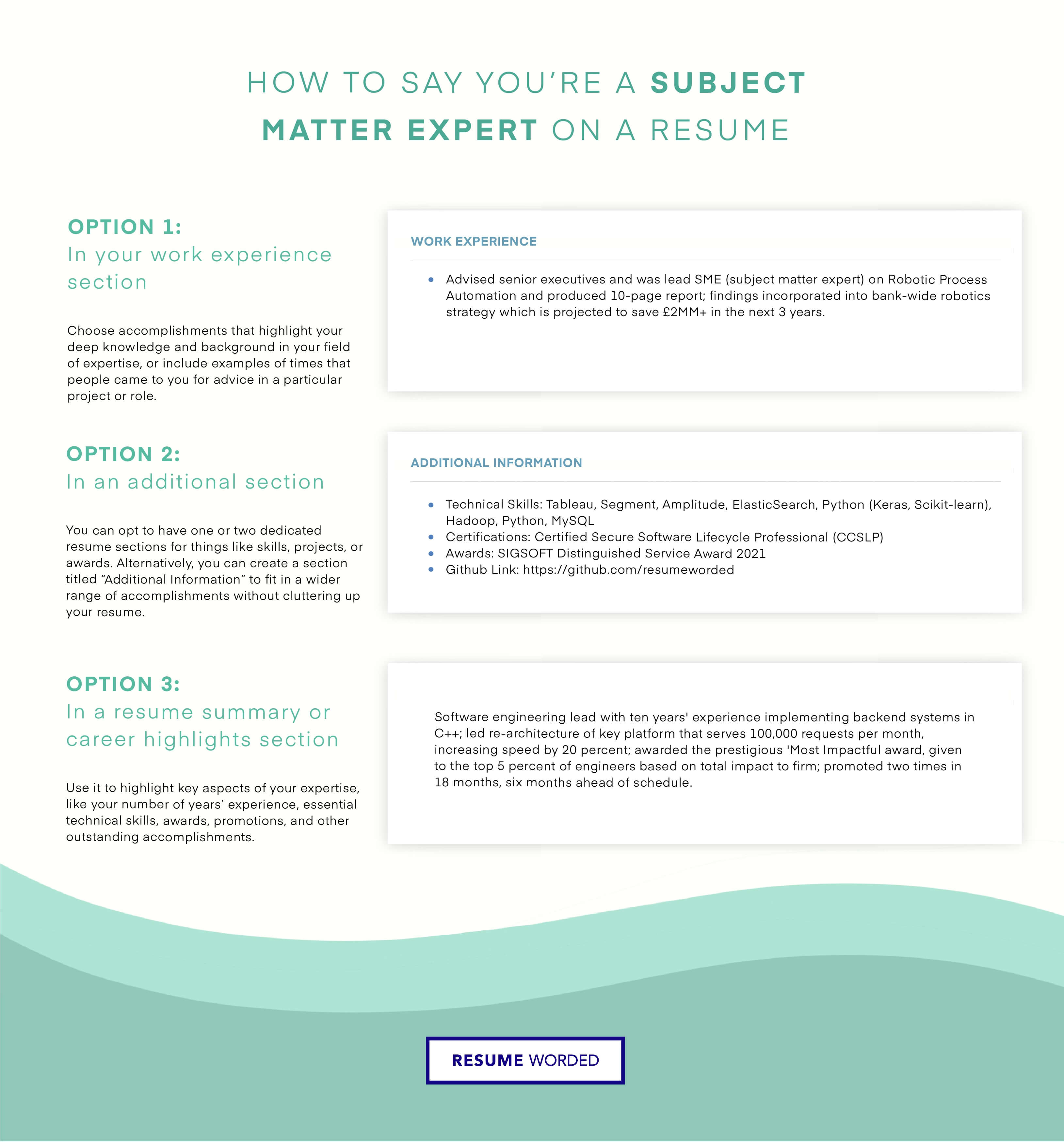“Looking for a self-motivated go-getter to work in a dynamic, fast paced environment …”
Sound familiar? It should — you’ll find some variation of that job description nearly everywhere you look. But what does it really mean? And how can you address your ability to work in a high stress environment on your resume?
It may seem like employers who use these kinds of buzzwords are playing games, but more likely, they don’t list specific hard skills because that’s not what they need. Instead, they’re looking for evidence of transferable skills — things like organization, multitasking, and the ability to cope with a non-stop work environment.
Here’s how to put evidence of those things on your resume.
How to say you can work in a fast paced environment on a resume
- Rule #1: Never come right out and say it. Phrases like “fast paced environment” are meaningless buzzwords on their own, so keep them off your resume.
- Instead, brainstorm the times you’ve worked in a high stress environment. What did you do to keep on top of it? What were your key accomplishments?
- Match these accomplishments to the job description. If the job involves “wearing many hats,” talk about a time when you had to juggle multiple priorities. If it’s a “high stress environment,” choose an example of when you worked on a high-stakes project.
- Format your accomplishments as short (1-2 line) bullet points. Aim for 3-6 bullet points per job.
- Start each bullet point with a strong action verb that accurately describes what you actually did.
- Add metrics to quantify your accomplishments. To illustrate a fast paced environment, include things like the number of tasks you completed and how quickly you got things done.
- Run your resume through a free resume checker for feedback on how well you scored and to highlight any essential skills or keywords you may have missed.
Where to put working in a high stress environment on your resume
In your work experience section
Working in a high stress environment is a soft skill, which means it belongs primarily in the work experience section of your resume.
Make sure you include:
- What the context was (project, task, etc.)
- What you did
- What the outcome was
In your cover letter
If you get the sense that the ability to work in a fast paced environment is an essential part of the job, you can also address it in your cover letter.
Don’t: Come right out and say, “I thrive in a fast paced environment.” Not only is it a little too on the nose, it’s also fairly meaningless.
Do: Give concrete examples of when you’ve worked in a high stress environment in the past. Imagine you’re answering an interview question like “tell me about a time when you worked in a high stress environment.”
Not sure how to word your cover letter? Check out our sample cover letters for inspiration!
A good way to check if your resume highlights the essential skills for working in a fast-paced environment is to upload it to the tool below — it’ll scan it and let you know if you have highlighted important soft skills like multitasking, time management and the ability to work well under pressure.
Essential resume skills for working in an agile environment
Not sure what it means to be able to work in a fast paced environment? Here are some important skills you might need:
- Keeping track of multiple projects with different requirements and deadlines
- Managing a heavy workload
- Coping with last-minute changes or additions
- Having little to no downtime
- Dealing with a hectic or disorganized workplace
- Working well under pressure
- Multitasking
- Time management
- Self-motivation
- Organization
To know exactly what skills a hiring manager is looking for, you may need to read between the lines in the job posting. Is the environment fast paced because there’s a lot of work? Tight deadlines? Lots of overtime? If you can understand what the job requires, you can tailor your bullet point accomplishments to fit.
Working in a fast-paced environment: Resume examples
The ability to work in a fast paced environment can mean many things. Here are some of the most common — and how to address them in your resume.
Responding quickly to emergency situations
Attended emergency intervention and de-escalating processes training, resulting in a 76% increase in response time.
Sometimes, jobs are described as “high stress” because they really are — essential roles with high-stakes consequences. In this case, choose accomplishments that highlight your ability to respond quickly to unexpected situations and stay calm in an emergency.
Maintaining a continuously high level of productivity
Pitched and composed an average of 6 to 10 news pieces per week for Resume Worded, a regional newspaper encompassing several diverse communities.
Other jobs are described as “fast paced” because they literally never stop. If you’re fine with a seemingly never-ending workload, choose accomplishments that demonstrate a consistently high level of productivity over an extended period of time.
Using your time wisely
Prepared departmental meetings, video conferences, and presentations using effective strategies that decreased meeting times from 2 hours to 45 minutes.
Time is money, and that goes double for fast paced environments. If you figured out a way to automate functions, reduce unnecessary overhead, or save time on regular tasks, definitely include that in a bullet point.
Staying on top of a demanding workload
Supported 14 C-Level executives by managing their executive calendars, coordinating meetings, and conference calls for 18 months consecutively.
Are you applying for a job that has you juggling multiple — often conflicting — tasks and deadlines from different sources? Choose examples of answering to more than one person, coordinating between different departments, or doing multiple roles under one job heading.










